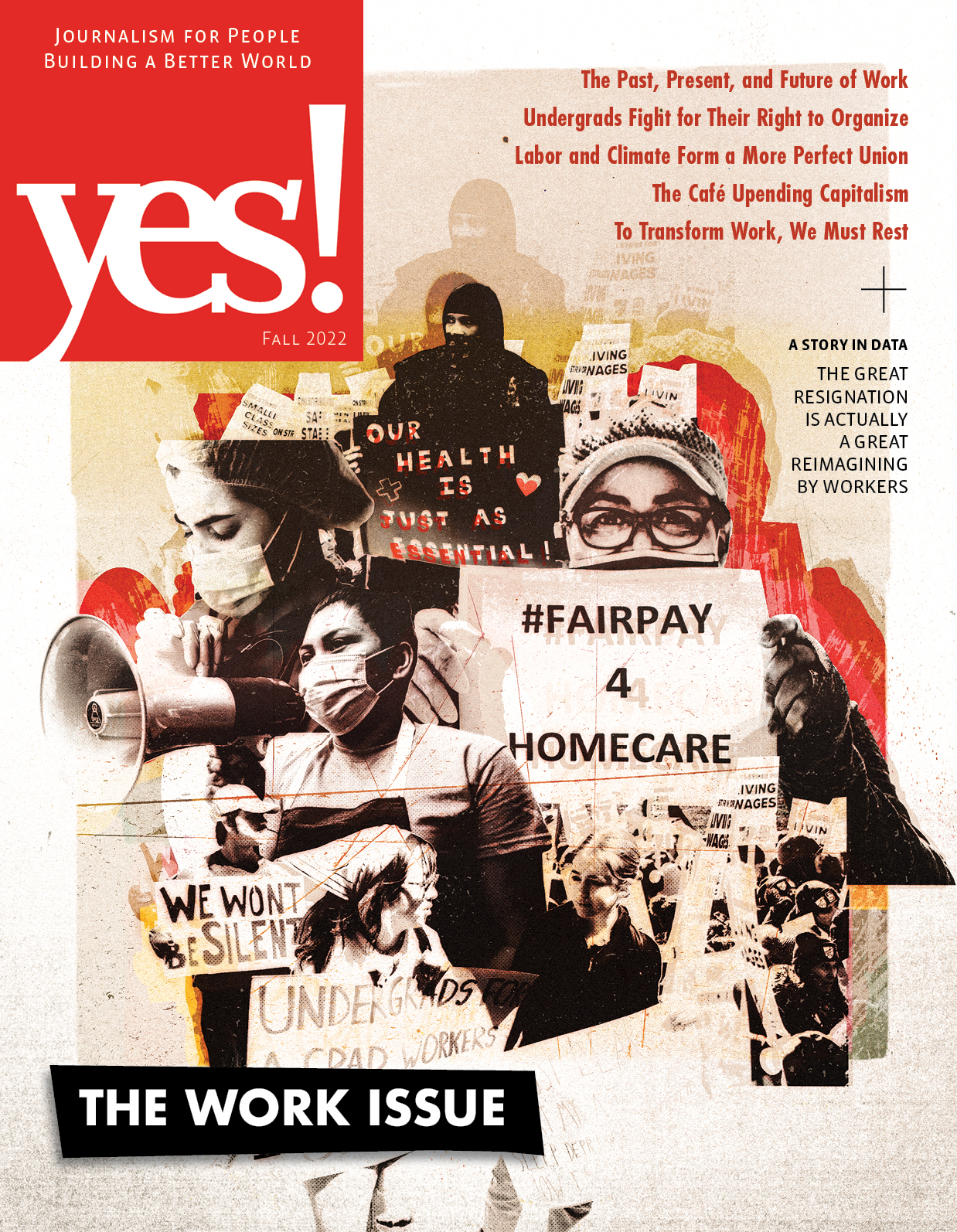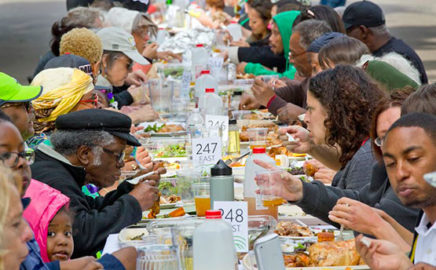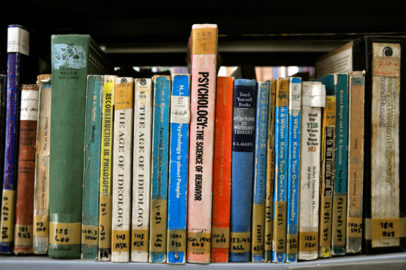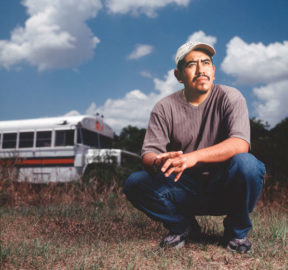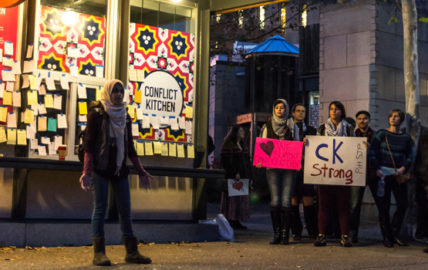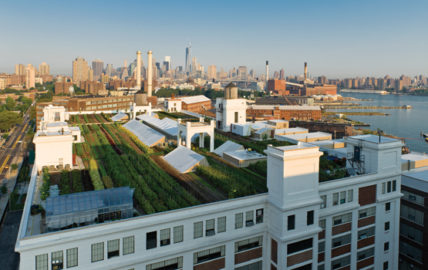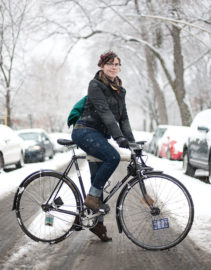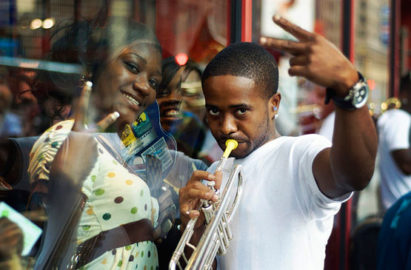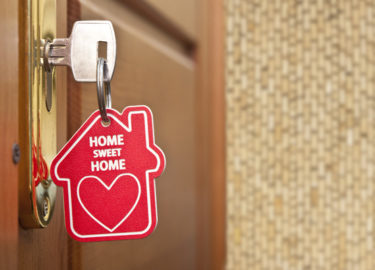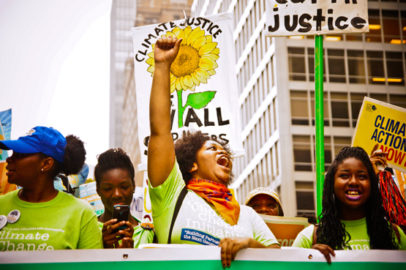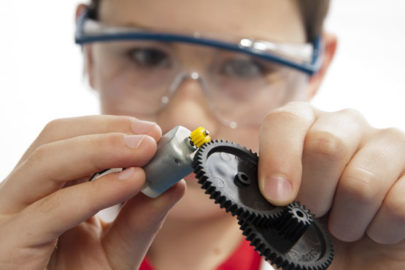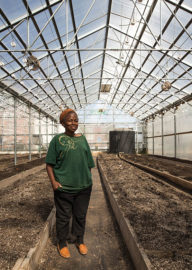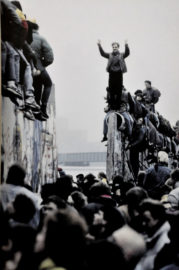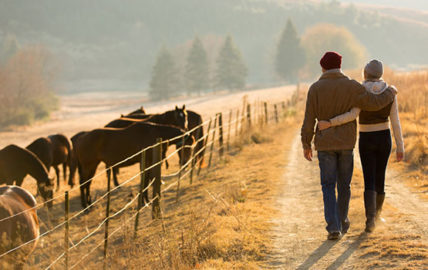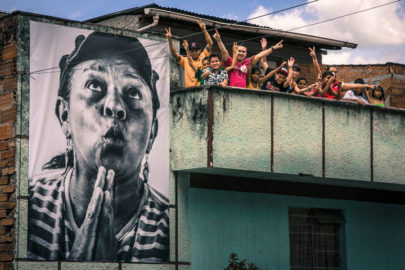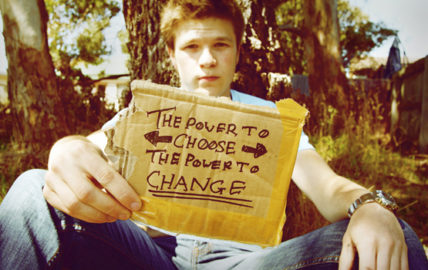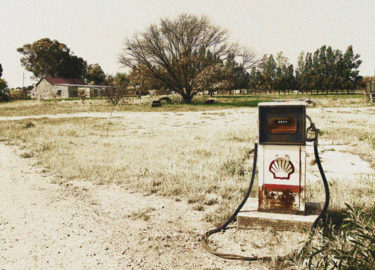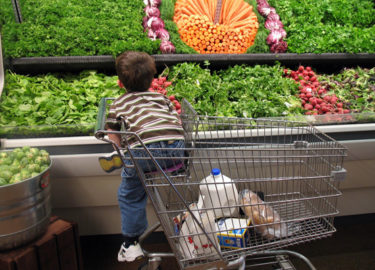In St. Paul, Minnesota, artist Seitu Jones wanted to start a community-wide conversation about food access and food justice—and where better to talk than over a good meal?
More than 40 percent of Palestinian males have spent time in Israeli prisons. The schools that operate within are increasingly important.
Grassroots action has backed down the city’s aggressive water shutoffs.
"This is not a film about oppression," said Food Chains executive producer Eva Longoria. "It's actually about transformation."
Forget potato clocks. This promising new technology derives substantial amounts of electricity from living plants.
Conflict Kitchen serves up food from countries in conflict with the United States—and its customers think it's worth defending.
The first video game developed by an indigenous-owned company uses gaming’s immersive storytelling style to connect players with Alaska Native culture.
There’s no time to waste when it comes to acting on climate change. The world’s most forward-thinking cities are curbing carbon and building for a sustainable future, now.
From the Deep South to the West Coast, these entrepreneurs are making sure jobs and dollars grow—and stay—in places hardest hit by hurricanes, poverty, and gentrification.
New energy is transforming our cities into hotbeds of democracy and progressive innovation.
At a time when nations are gridlocked and corrupted by special interests, cities are taking on poverty, social isolation, and the climate crisis.
Did you know an elephant can bring in more than $1.6 million during its lifetime—from ecotourism?
"The global justice movement, the antiwar movement, the climate movement: We are now part of a much larger, more systemic movement that really sees the interrelationships between all these systems and climate destruction."
The starting point is to realize we have choices—like meaningful work, authentic relationships, and gratitude.
I love my solitude. I also love my community. But my independent nature has never been unusual in this town.
Instead of loaning students money, the federal government could just pay for their tuition, without causing any significant economic problems.
What these kids came up with will leave you wondering what adults are even doing anymore.
From kitchens that buy and sell locally grown food, to a waste co-op that will return compost to the land, new enterprises are building an integrated food network. It's about local people keeping the wealth of their land at home.
Every so often, we witness a period of mass insurgency that seems to defy the accepted rules of politics. If ever there was a time in modern history that exemplified such a moment, it was the second half of 1989.
I had grown up identifying joblessness with shame and failure. But here we were, on the other side of the employment equation, and for the first moment in my grown-up life, everything felt … right.
Medellín went from being ground zero of Colombia's drug war to UN poster child for urban equality—and the people made it happen, by designing the city they wanted.
Want to learn to change the world with empathy? Get ready to learn from the masters.
So the national elections didn’t go so well. But across the country—from California to North Dakota—citizens made decisions that will give you reason to hope.
When it comes to divestment, the anti-apartheid struggle is always cited as an influence. Here's how South Africans are starting to apply those same lessons to addressing climate change.
“As we found ourselves choosing between rice, oatmeal, or potatoes for every meal, it occurred to us that being in poverty isn’t about how hard you work; it’s about how much money you make.”
Help Fund Powerful Stories to Light the Way Forward
Donate to YES! today.
